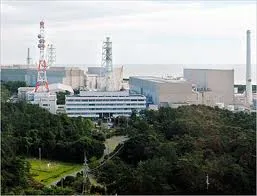
Japan, China, and Korea to cooperate in ensuring nuclear safety
Japanese Prime Minister Naoto Kan, Chinese Premier Wen Jiabao and South Korean President Lee Myung Bak agree that strong cooperation will be needed for Japan's rapid rebuilding.
To prevent the recurrence of a similar nuclear disaster like the one that transpired in Japan, they pledged during the trilateral Tokyo Summit for their countries to work toward building a comprehensive framework in which their experts can work more closely together and mutually access useful information, such as through the establishment of an early notification system
The leaders agreed that nuclear power ''remains an important option for many countries,'' but noted that ensuring its safety is ''a prerequisite...and the principle of 'safety first' should be upheld.''
They affirmed the importance of taking a cautious approach, based on scientific evidence, in dealing with the safety of products in the event of a nuclear accident, following fears especially over Japanese farm produce stemming from the crisis at the Fukushima plant.
Lee said the impact of the nuclear accident was enormous, particularly in geographically close South Korea and China. He said, ''I really learned from the Fukushima accident about the need for speedy communication with the public in addition to fine scientific preparations.''
At the same time, while recognizing that atomic power remains a key option for many countries, the leaders agreed to facilitate joint programs on renewable energy and energy conservation to avoid excessive dependence on nuclear power.
Based on Japan's latest experience of accepting a huge scale of multinational relief work, the three countries laid down the principles of how to cooperate with each other in the event of emergencies.
For disaster prevention, they decided to explore the possibility of staging a joint rescue drill and creating an information-sharing system.
In addition, the three leaders devoted some amount of time to the latest situation in North Korea, following the start Friday of North Korean leader Kim Jong Il's visit to China.
The communique said that ''concern was expressed'' over North Korea's uranium enrichment program.
It also underlined the importance of constructive inter-Korean dialogue and ''concrete actions'' to create an environment for the resumption of the long-stalled six-party talks on Pyongyang's denuclearization involving the two Koreas, China, Japan, Russia and the United States.
The Tokyo summit is the fourth of its kind since Japan, China and South Korea agreed in 2008 to take turns hosting the three-way meetings every year as a way to enhance mutual trust and cooperation.













 Advertise
Advertise











